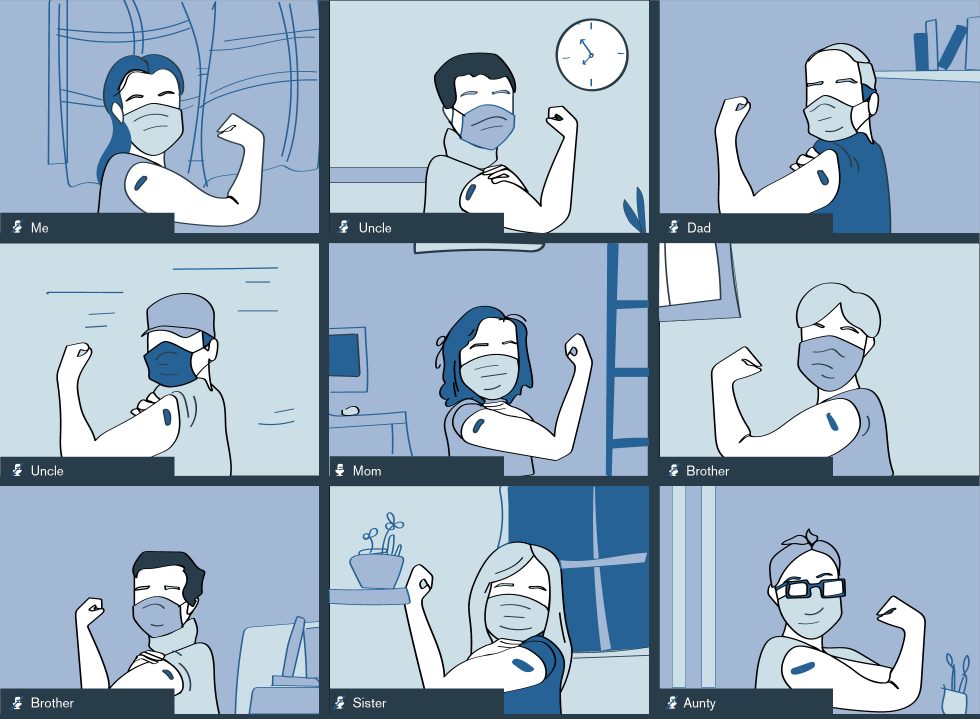Just last year, about three to four months into the pandemic since the first Covid infection was detected in Indonesia, I still jokingly wished every birthday person with “Happy Pandemic Birthday” or “Welcome to the Pandemic Birthday Club” with humour that translated well. It has been a year now, and that joke got old.
A year has gone by like a very crusty roller coaster ride (no fun, all danger), and just when we thought recovery was on the horizon, COVID-19 introduces us to the Delta variant sweeping across nations, barbaric enough to make Indonesia its new epicentre.
Was that whole year of awkward birthday Zooms for nil?
All jokes aside, everybody alive today has experienced heartbreaking disruptions caused directly or indirectly by the virus. Collectively, we’ve experienced grief through the loss of our normal lives, once filled with rituals and emotional connections. We also found consolation with the fun of Dalgona coffee, plant care, Clubhouse craze and sourdough baking and the ongoing list of activities we’ve promised ourselves to undertake at some point. But the true menace emerged with Delta, the last strike that robbed us of our hopes and appetite for life.
Depending on how you see it, it could be wishful thinking or dangerous to hope that the second year of a pandemic would play out the same. But we greeted 2021 with dimmer lights in our hearts. If last year we could still see the humour in virtual subpar celebrations, claim a ridiculous newfound passion or find joy in sharing the silly things we do at home, this period revealed everyone fading into survival: rest, work, and eat.
Nothing remarkably stirs us anymore, whether it’s the newest viral trends (like air fry pasta and dip) or phone calls from loved ones. We’re disinterested in the very idea of earnest expression, answering “how are you” with “just getting by” on every chat.
It turns out, a term has been coined for this happiness we’re missing since the pandemic happened. Emile Durkheim, a French Sociologist from the early 20th century gave it the name Collective Effervescence: it’s when a community of social beings gather together and express the same thought and sentiments to the point that the ritual becomes a transcending experience and fulfils a human need.
You’ve probably heard of the character Syndrome from the first The Incredibles (2004) film by Pixar in which he dauntingly said “When everybody is special, nobody is”? Well, Collective Effervescence debunks that: take a sports game, for example, when a crowd cheers their team from the top of their lungs for a score or expresses agony over a bitter loss, everybody at that bonding moment feels special and is special to their neighbour, stranger or not. Bliss often peaks in these social moments.
This kind of happiness, one with connectedness, shared purpose and harmony, is unique to the collective effervescence phenomenon, making gatherings like sports games, concerts, dinner parties and even team brainstorming important rituals that help maintain physical and emotional well-being. Because emotions are inherently social, social interactions are functions for happiness.
The same way the smile of a loved one is contagious, one’s dolour and discontent can catch you too. Onto the second year of a pandemic-stricken life, we’ve built the collective consciousness that nobody is fine. Besides being absent from celebrating any sort of good news (I rest my case that virtual gatherings didn’t take off and never will), there’s a deficit of good moments we can bond over when our day to day life is limited to solitary activities at home. And when nearly everybody in your daily circle exchanges dispassionately (by no fault of their own), it puts society in a 50 meter-deep emotional slump ridden of any enthusiasm. I’d like to call it “collective apathy.”
Understanding Collective Effervescence and its importance to our emotional and mental health put many doubts and hesitations to rest: why it is so imperative to obey health mandates and protocols, why staying home will make a difference, and why getting vaccinated is a matter of public safety. Acting on one’s self-interest will cripple the collective effort to recover and drive everybody deeper into languishing and dispassion, deprived of any prospects of post-COVID happiness. In all rawness, I want myself and everyone to feel alive again and I’m willing to bet every soul wishes the same.







